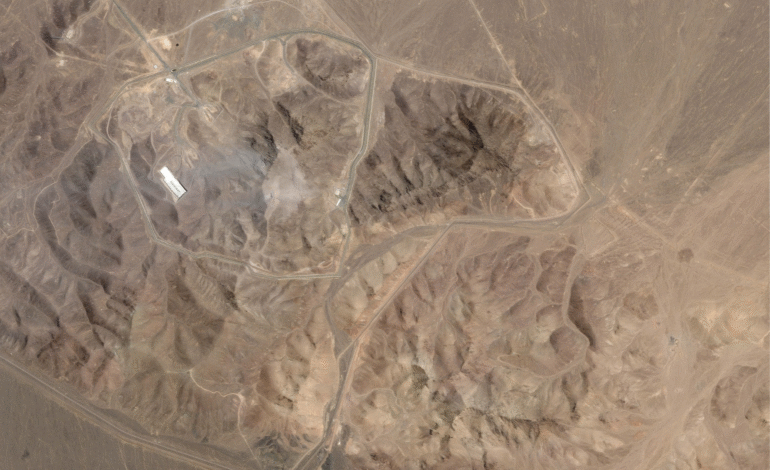FANR: No Threat to UAE from Iran Nuclear Developments

The Federal Authority for Nuclear Regulation (FANR) has reassured residents of the United Arab Emirates regarding nuclear safety following recent developments at nuclear facilities in the Islamic Republic of Iran. FANR confirmed that national authorities are closely monitoring the situation and working in coordination with international partners. The authority’s statement emphasized that current assessments show no impact on the UAE and highlighted the importance of relying on official sources for information.
The announcement comes as part of FANR’s commitment to transparency and public safety amid heightened attention on regional nuclear activities. The authority’s proactive communication is intended to prevent unnecessary public concern and counter the spread of rumors or unverified information regarding nuclear developments in neighboring countries.
FANR’s Mission to Ensure UAE Nuclear Safety
FANR is the UAE’s independent nuclear regulatory body, responsible for overseeing the safety and security of the nation’s nuclear program. This includes monitoring the Barakah Nuclear Energy Plant and other domestic nuclear activities, as well as tracking external developments that could impact the country.
In light of recent concerns about Iran’s nuclear facilities, FANR has reiterated that it is in continuous coordination with international organizations, particularly the International Atomic Energy Agency (IAEA). This partnership ensures that the UAE receives timely, verified information about regional nuclear developments. FANR’s statement confirmed that, based on comprehensive monitoring, no current threat exists to the UAE or its residents.
Continuous Monitoring and International Coordination
FANR works closely with both national agencies and international bodies to uphold nuclear safety. The authority’s collaboration with the IAEA enables it to access official reports, technical data, and real-time updates on nuclear sites in Iran and the wider region. These insights help FANR evaluate any potential risks and issue accurate guidance to the public.
Within the UAE, FANR partners with security agencies, civil defense, health authorities, and environmental organizations to ensure that any external nuclear developments are swiftly assessed for possible impact on the nation. The authority’s approach reflects the UAE’s broader commitment to regional stability and international nuclear safety standards.
FANR’s cooperation with the IAEA is particularly significant, as it provides a scientific basis for its assurances. Through this collaboration, FANR confirms that the UAE faces no danger from current activities at Iran’s nuclear facilities.
Combating Misinformation About Nuclear Safety
In its statement, FANR emphasized the importance of accurate information and the risks of spreading unverified news. The authority warned against reliance on rumors or social media speculation, which can fuel unnecessary fear about nuclear safety.
FANR urged residents to depend on official updates shared through its website, verified social media accounts, and official government communications. By doing so, the public can ensure they are receiving reliable and factual information.
To support public understanding, FANR regularly provides media briefings, publishes reports, and engages with educational institutions and community groups. These efforts aim to create a well-informed society that understands the role of FANR and the measures in place to protect the UAE.
FANR’s Robust Monitoring and Emergency Preparedness
FANR’s assurances are supported by a comprehensive monitoring system that uses advanced technology to track radiation levels and detect any unusual nuclear activity. The authority employs satellite monitoring, radiation detection equipment, and international early warning systems to ensure no developments go unnoticed.
In addition to technological measures, FANR coordinates national emergency drills and simulations. These exercises are conducted with relevant UAE agencies to prepare for any potential nuclear or radiological incident, reinforcing the nation’s readiness to act swiftly if necessary.
FANR also prioritizes community education as part of its mission. Through public awareness campaigns, the authority explains safety measures, radiation protection practices, and how the UAE’s regulatory framework protects residents from nuclear risks. This proactive approach ensures the public remains calm and prepared in all circumstances.
The UAE’s Regional Role in Promoting Nuclear Safety
The UAE’s nuclear policy emphasizes peaceful use, transparency, and full compliance with international safety protocols. The country advocates for a Middle East free of weapons of mass destruction and positions its nuclear energy program as a model of responsible development.
FANR’s monitoring of Iran’s nuclear facilities forms part of this wider commitment to regional peace and stability. The authority’s vigilance helps ensure that the UAE remains safe, while its clear communication supports public confidence and international credibility.
FANR stated that current assessments, informed by international data and national expertise, confirm that the UAE is not affected by nuclear developments in Iran. The authority’s statement reflects its dedication to evidence-based communication and responsible regulatory practice.
FANR’s Ongoing Commitment to Public Safety
FANR’s statement highlighted that the authority remains focused on continuous improvement in its monitoring systems, emergency response protocols, and public communication strategies. FANR will continue to work with national and international partners to protect the UAE and provide accurate, timely information as situations develop.
Residents are encouraged to remain informed through official FANR channels and to help counter misinformation by sharing verified updates. FANR’s commitment to nuclear safety, transparency, and collaboration ensures that the UAE’s population, environment, and future remain safeguarded.







